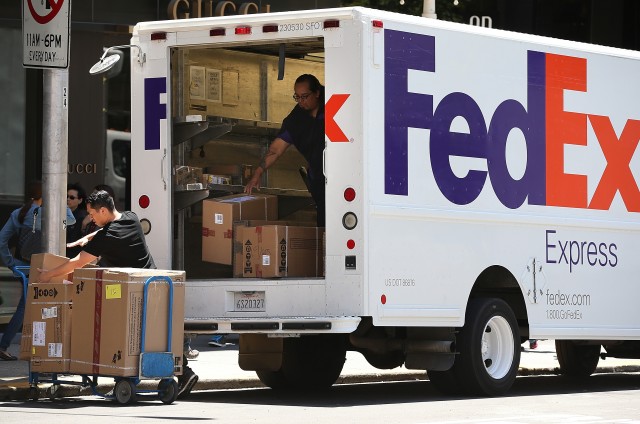Company's Alleged Knowledge
The indictment outlines what it describes as FedEx's sales and credit policies for the company's dealings with online pharmacies. For instance, the grand jury quotes a 2006 memo outlining the legal issues surrounding many Internet pharmacies and the consequences for the company:
Many of these companies operate outside federal and state regulations over the sale of controlled drugs, which require diagnosis and prescription by a licensed physician. Drugs purchased from these sites may be diluted or counterfeit. Several sites have been shut down by the government without warning or simply disappeared leaving large balances owing to FEDEX.
The indictment says that since 2004, the Drug Enforcement Administration, Food and Drug Administration and members of Congress informed FedEx on six occasions that illegal pharmacies were using its shipping services to distribute illegal drugs.
At the same time, the indictment says, FedEx couriers in Kentucky, Tennessee and Virginia expressed safety concerns. FedEx trucks had been stopped on the road by online pharmacy customers demanding packages of pills; delivery addresses included parking lots, schools and vacant homes. Drivers were threatened if they insisted on delivering a package to the address instead of giving it to the person who demanded it, and customers would use multiple names and IDs to pick up packages, according to the indictment. An employee is quoted as telling management that some recipients of the packages were "known to be selling and using" and that "some of the recipients have overdosed and died."
In response, the indictment says, FedEx's senior vice president of security approved a plan for packages from problematic shippers in which the packages were held for pickup at specific FedEx locations.
The indictment details FedEx's alleged involvement with two major online pharmacies that had been the target of federal law enforcement: the Chhabra-Smoley Organization and Superior Drugs.
The indictment charges that FedEx continued to do business with the firms even after it knew that federal and state law enforcement agencies had taken criminal action against them resulting in the shutdown of affiliate pharmacies and the arrest and conviction of their owners, operators, pharmacists and doctors.
Ongoing Investigation
The investigation stems from a blitz against online pharmacies launched in 2005 in San Francisco. Since then, dozens of arrests have been made, thousands of websites shuttered, and tens of millions of dollars and pills seized worldwide as investigators continue to broaden the probe beyond the operators.
Rival shipping company UPS paid $40 million last year to resolve similar allegations. In 2011, Google agreed to pay $500 million to settle allegations by the Department of Justice that it profited from ads for illegal online pharmacies.
And a federal jury in 2012 convicted three men of operating illegal pharmacies that used FedEx and UPS to deliver drugs without proper prescriptions. Seven others were previously convicted in San Francisco.
FedEx has been summoned to appear in federal court in San Francisco on July 29.
Read the indictment:
This post contains reporting from the Associated Press.
